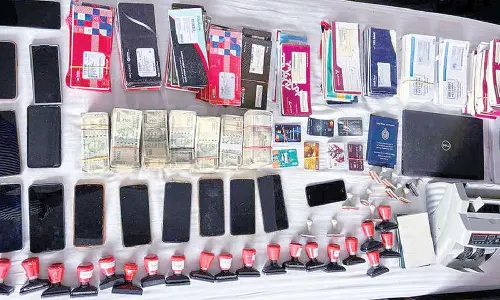Crypto not ok for payments, could be treated like gold
 Bitcoins & Gold Representational Image
Bitcoins & Gold Representational ImagePrime Minister Narendra Modi had chaired a meeting to discuss the future of cryptocurrencies amid concerns that unregulated crypto markets could become avenues for money laundering and terror financing.
New Delhi: As the brainstorming cryptocurrency regulations continues, certain aspects could be debated at length before digital coins are declared as legal tender in the country. For instance, there have been long discussions on whether crypto should be treated as virtual money or a commodity or an asset.
Last week, Prime Minister Narendra Modi had chaired a meeting to discuss the future of cryptocurrencies amid concerns that unregulated crypto markets could become avenues for money laundering and terror financing.
The Centre may ban the use of cryptocurrencies for transactions or making payments but allow them to be held as assets like gold, shares or bonds, reports indicate.
The reports, citing sources, said the approach would avoid implementing a complete ban as the government was keen to stop crypto companies, including exchanges and platforms, from actively trying to attract new investors. The Securities and Exchange Board of India (SEBI) could be designated as the regulator, though that has not been finalised, according to the reports. The crypto community has made several representations to Indian authorities asking to be classified as an asset rather than as a currency, to gain acceptance and avoid a ban.
Meanwhile, the Reserve Bank of India has so far appeared very reluctant to accept cryptocurrencies, expressing concerns over potential risks to macroeconomic and financial stability, and capital controls. However, the RBI is working on a digital currency. The government may bring in a crypto Bill for the Cabinet's approval. The new Bill may be brought in the winter session of Parliament.
India's digital currency market was worth $6.6 billion in May 2021, compared with $923 million in April 2020, according to blockchain data platform Chainalysis.
On the other hand, there have been calls in the country to impose stricter rules for transactions in virtual coins as an unregulated environment may push more domestic savings toward the asset class and could endanger household savings.








